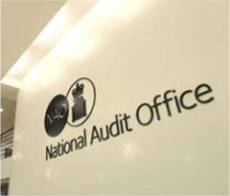September 7, 2013
New report urges UK Government departments to ditch paper completely by 2020
 A new report from the Think Tank Policy Exchange is claiming that UK Government departments should look to stop using paper by moving from process that are ‘digital-by-default to digital, full stop’ by the year 2020. The report, Smaller, Better, Faster, Stronger: Remaking government for the digital age, claims that the move would make the UK public sector 8 percent more effective and save £24 billion a year by eliminating the paper used by Government departments to communicate and switching to digital processes for all services that don’t require face-to-face interaction with suppliers and members of the public.
A new report from the Think Tank Policy Exchange is claiming that UK Government departments should look to stop using paper by moving from process that are ‘digital-by-default to digital, full stop’ by the year 2020. The report, Smaller, Better, Faster, Stronger: Remaking government for the digital age, claims that the move would make the UK public sector 8 percent more effective and save £24 billion a year by eliminating the paper used by Government departments to communicate and switching to digital processes for all services that don’t require face-to-face interaction with suppliers and members of the public.
























August 22, 2013
UK Government making slow progress on commitment to spend more with SMEs
by Mark Eltringham • Comment, News, Public Sector
(more…)